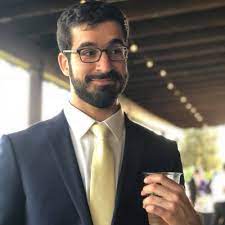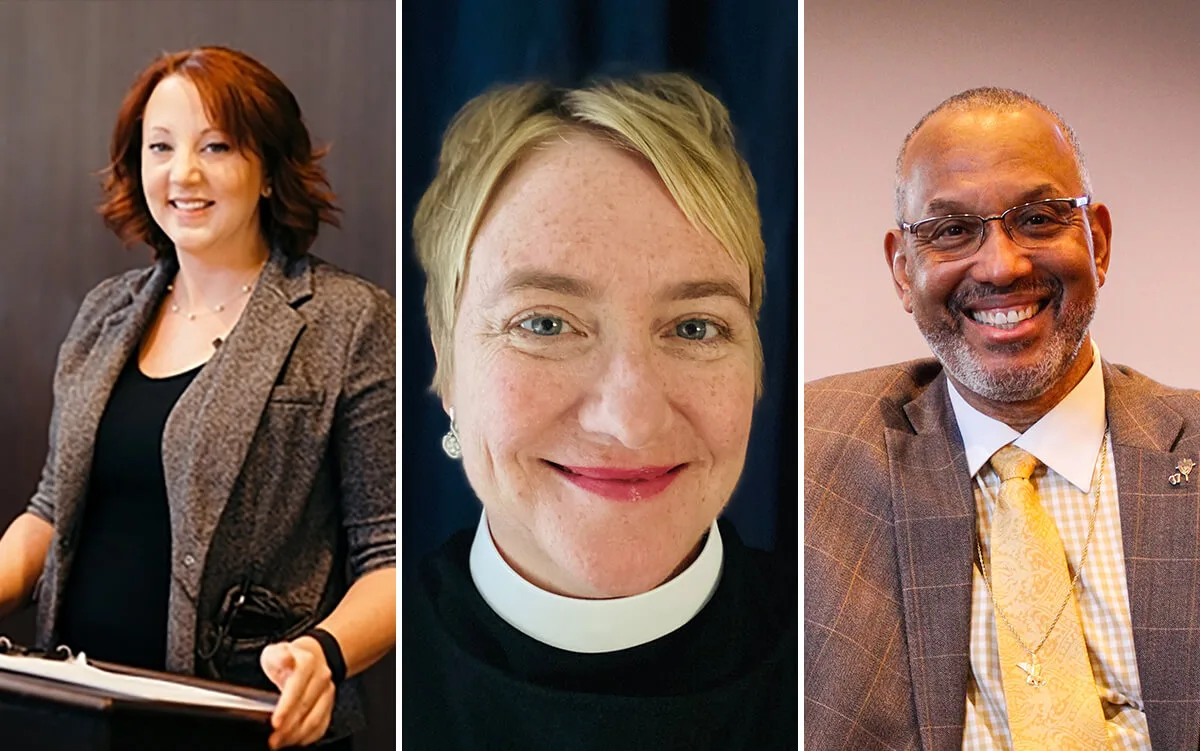
Images via subject
Senate Republicans filibustered the For the People Act on Tuesday, at least temporarily ensuring its demise and giving their counterparts in state legislatures free reign to pass laws restricting voting access for millions of Americans.
The Rev. Anne Ellsworth was frustrated, but had a sense of what was coming. On Tuesday afternoon, Republicans in the US Senate blocked the most significant voting rights bill in decades.
Ellsworth, a priest at St. Augustine’s Episcopal Parish in Tempe, and other local faith leaders have spoken out in recent months about protecting voting rights and expanding access to the ballot box as a Christian issue, not a partisan one.
“This has nothing to do with political affiliation and it has everything to do with Christian identity. Bringing marginalized voices into democracy and helping restore their right to participate is a Christian issue,” Ellsworth told The Copper Courier. “This is central to our identity. We’ve always been part of movements that have helped further the cause of inclusion, and this is no different.”
Looking for the latest Arizona news? Sign up for our FREE daily newsletter.
But voting rights has become a partisan issue among lawmakers. Following the lead of former President Donald Trump, many Republicans across the country have bought into “The Big Lie,” the thoroughly disproven claim that the 2020 presidential election was fraudulent.
While all 50 Senate Democrats, including Arizona Sens. Mark Kelly and Kyrsten Sinema, voted to begin debate on HR 1/S 1, also known as the For the People Act, not a single Republican voted for a bill that would make voting more accessible and convenient for Americans and overhaul standards for federal elections.
The proposal aims to make Election Day a national holiday, enable automatic, online, and same-day voter registration; require at least 15 early voting days, including weekends; allow any voter who wants to cast a ballot by mail to do so; and reform the nation’s campaign finance system by limiting the influence of wealthy donors, among other measures. Despite support from faith leaders like Ellsworth, an overwhelming majority of Americans, and nearly a thousand political scientists (including 28 from Arizona), Republicans filibustered the bill, at least temporarily ensuring its demise in the 50-50 Senate and giving their counterparts in state legislatures free rein to pass laws restricting voting access for millions of Americans.
Why the Opposition?
For Ellsworth, there’s no mystery why Republicans are rushing to restrict access to the ballot box. “All of this is rooted in fear,” she said.
Dr. Warren H. Stewart Sr., senior pastor at First Institutional Baptist Church in Phoenix and chair of Arizona’s African American Christian Clergy Coalition, agrees.

“I think they’re operating out of fear and insecurity,” he said. “I believe many of them are afraid of losing their power in the individual states and even in the United States of America as a whole.”
This “intentional erosion of democratic participation” does not reflect what Christianity is supposed to be, according to Ellsworth. “As a Christian and now as a priest, I believe that we have to be rooted in love, and love calls us forward and calls us out and calls us to amplify the voices that are being silenced.”
The Rev. Katie Sexton-Wood, the executive director of the Arizona Faith Network, echoed Ellsworth’s comments. “All of our faith traditions say that every single person matters and that our voice matters, and that we should be heard in one way or another,” Sexton-Wood said.
Republicans have argued that election laws should remain in the hands of the states, revisiting their go-to historical argument whenever they want to block legislation at the federal level: the principle of states’ rights.
Stewart called out this argument for what it is: an excuse for exclusionary lawmaking.
“The whole euphemism of states’ rights supported slavery, supported Jim Crow laws, and segregation for a couple of centuries here in this nation,” he said. “HR 1/S 1 wants to protect voting rights in every state of the United States and not leave it in the hands of particular states, depending on who is in control to determine who gets to vote and who doesn’t get to vote.”
The Attack on Voting Access
Who gets to vote is very much up for debate in 2021. As of mid-May, state lawmakers across 48 states have introduced 389 bills that restrict voting, according to the Brennan Center for Justice. Nearly two dozen of those bills have already been enacted.
In Arizona, Gov. Doug Ducey, a Republican, recently signed a law that will require counties to remove mail-in voters from their early voting list during odd-numbered years if they do not cast a ballot by mail for two election cycles in a row and fail to respond to a notice from election officials within 90 days. The law could have a significant impact on voter turnout, as Arizona’s vote-by-mail system is incredibly popular—nearly 90% of voters cast their ballots that way in 2020 amid the coronavirus pandemic.
Activists and Democrats fear that SB 1485 could push between 100,000 and 216,000 voters, many of whom are Black and Latino, off what was previously known as the Permanent Early Voting List. That list will now be called the Active Early Voting List because of the law.
Rev. Sexton-Wood said the passage of SB 1485 represented an effort to suppress Latino votes.
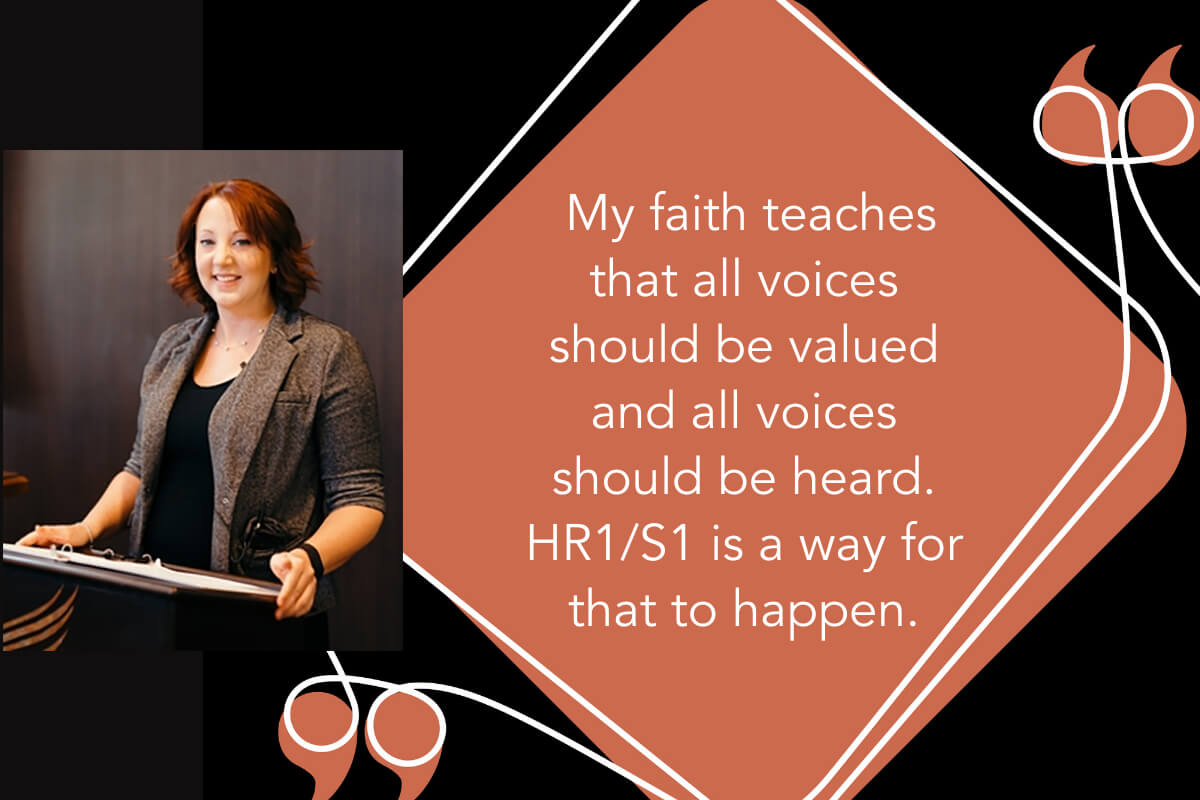
“It seems like a power grab to me for the fact that our state is increasingly Latino. Those are the voices of who are going to be the majority of the state not too far off [in the future] and so to keep them off the Permanent Early Voting List is going to be just a huge roadblock to getting them to vote,” she said. “It’s systemic racism in order to keep power and yet another example of just oppressing voices.”
In the months since Joe Biden became the first Democratic presidential candidate to win Arizona in 24 years—and only the second since 1948—Republicans in Arizona have also introduced more than 20 other bills to limit voting access, including efforts to shorten the time for early voting and preemptively ban automatic voter registration.
These efforts are the very reason why the For the People Act is so critical, according to Sexton-Wood. Her support for the bill is rooted in her faith.
“My faith teaches that all voices should be valued and all voices should be heard, and HR 1/S 1 is a way for that to happen,” she said. “It’s going to help all voices be heard, which is just so central to our faith traditions. It’s going to help our vulnerable neighbors have access to having more of a say in what impacts their own lives, instead of not being able to have any say in that.”
Republican lawmakers in the state have also attacked the state’s electoral system in other ways. Despite statements from both Ducey and Secretary of State Katie Hobbs that Arizona’s 2020 election results were accurate, Republicans in the state Senate mandated a GOP-led, privately managed audit of the results in Maricopa County. The effort has been widely dismissed as a hypocritical farce. Even some Arizona Republicans have criticized the audit, describing it as “insane” and a “grift.”
Ellsworth lamented that the circus-like atmosphere was distracting from real issues affecting Arizona.
“We have a need for infrastructure and education funding. We have a need to manage our climate crisis, to figure out our water crisis, to manage wildfires,” she said. “I think it’s destructive to democracy, but I also think it’s destructive to Arizona to just have our eye on that and not lift up the real needs that need to be addressed in the next election.”
How Voting Rights Is a Faith Issue
Despite Tuesday’s setback, Ellsworth believes that faith leaders and churches have a responsibility to push ahead and continue speaking out in support of voting rights and against efforts to limit Arizonans’ access to the ballot.
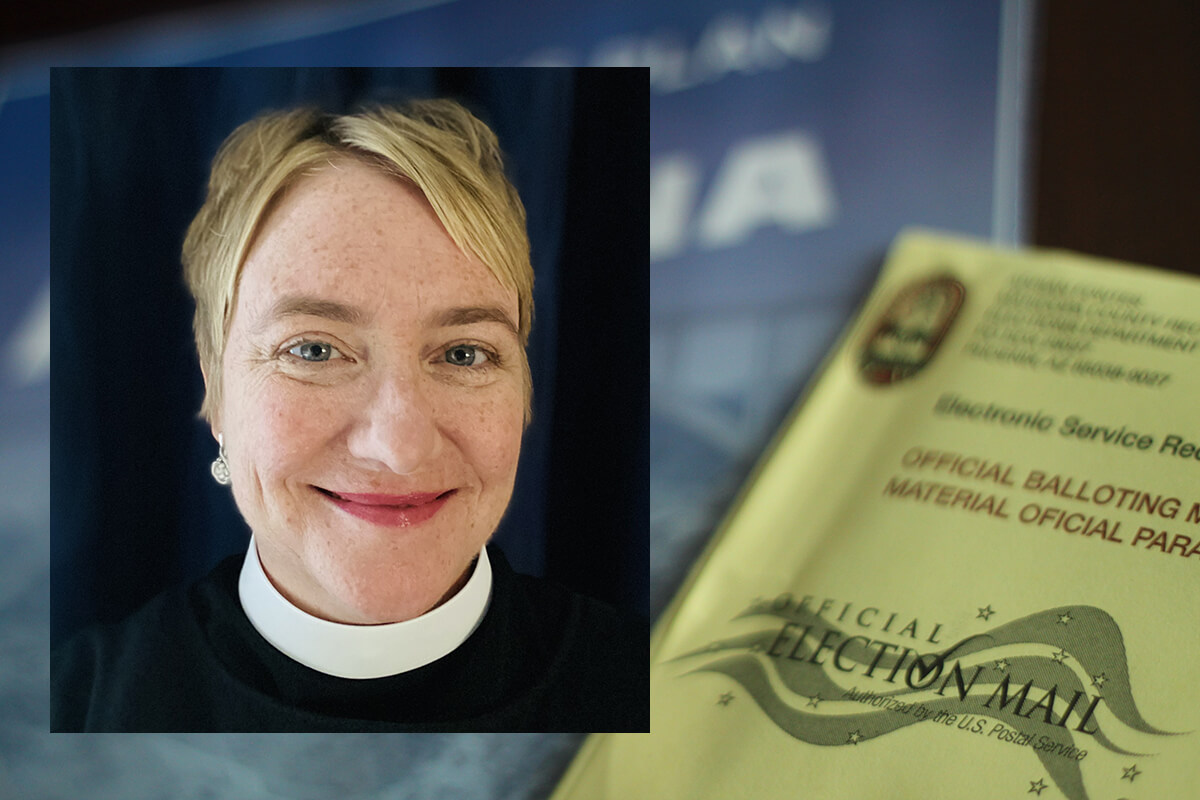
“The faith community—and I’ll just speak for the Episcopal church—we have to find a way to make connections between participation in democracy and our faith,” Ellsworth said. “We have to find a way to say this is a nonpartisan issue. Every person in a pew needs to be concerned and needs to really understand why this [voter suppression] legislation is being promoted and passed and why it’s wrong and why we have to respond.”
Without free and fair access to the ballot box, policies that many Arizonans and Americans support—gun safety laws, laws that ban LGBTQ discrimination, the George Floyd Justice in Policing Act—won’t stand a chance of becoming law. The church has a role to play in clarifying these stakes, according to Ellsworth.
The faith leaders also recognize the reality that the For the People Act is not going to pass unless Senate Democrats abolish the filibuster, an arcane Senate rule that essentially requires 60 votes to pass legislation. While most Senate Democrats have expressed a willingness to end or change the filibuster, Arizona Sen. Kyrsten Sinema is one of two Democrats who has repeatedly refused to entertain the idea.
Members of the African American Christian Clergy Coalition, which Stewart chairs, were among those present at a recent protest held outside Sinema’s Phoenix office, calling for the end of the filibuster. “We are doing everything we can to fight against this move to take away voting rights,” Stewart said.
He and his fellow faith leaders understand what’s at stake in this fight.
“Voting is an almost sacred right for us in the United States of America, because it was denied of African Americans for almost a couple of centuries,” Stewart said. “The fact that we fought, we sacrificed and many people lost their lives in order to vote, it’s very precious and we need to be preserving the right.”
READ MORE: Activists Urge Sinema to Ditch Filibuster After Republicans Use it to Kill Voting Rights Bill
Politics
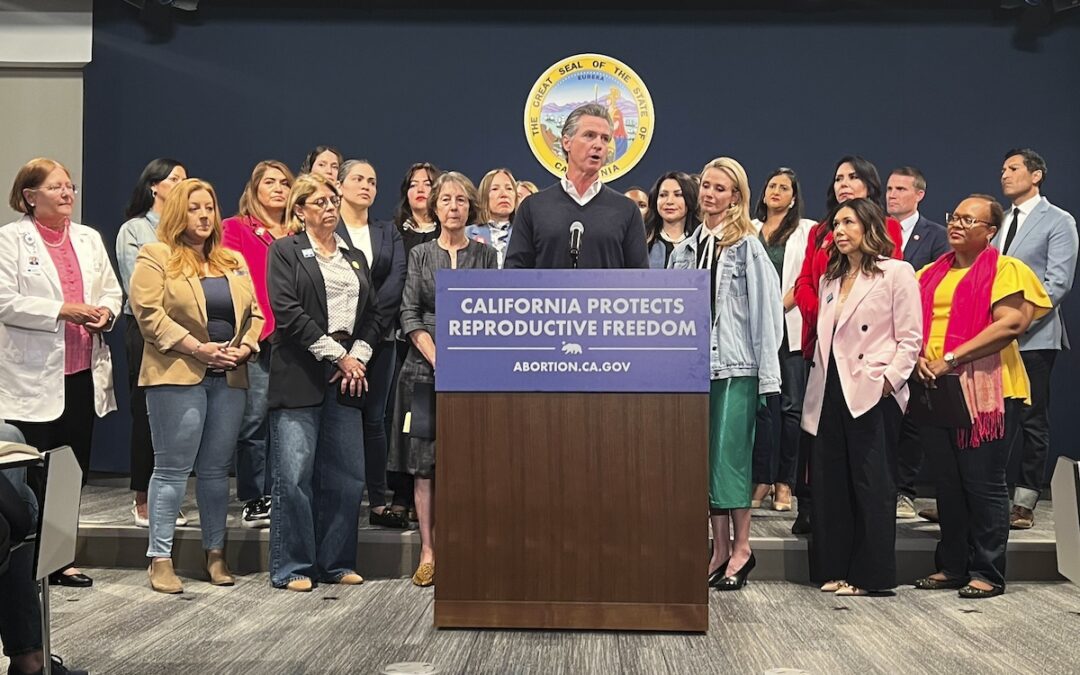
Gov. Gavin Newsom wants to let Arizona doctors provide abortions in California
California law generally allows abortion up to the point of fetal viability, which is around 24 weeks. SACRAMENTO, Calif. (AP) — Arizona doctors...

VIDEO: Arizona Attorney General Kris Mayes indicts 18 ‘fake electors’
@coppercourier An Arizona grand jury has indicted former President Donald Trump's chief of staff, Mark Meadows, lawyer Rudy Giuliani, and 16...
Local News

Escape the heat at these indoor pools in Tucson
Arizona: it's synonymous with sunny. Mix that sun with the sprawling urban blacktops and the result is the nationally recognized heat that is...

We asked, you answered: 7 music venues in Arizona for a more intimate show
The biggest artists in the world come to Arizona to perform at places like Footprint Center, State Farm Stadium, and Desert Diamond Arena. But what...

